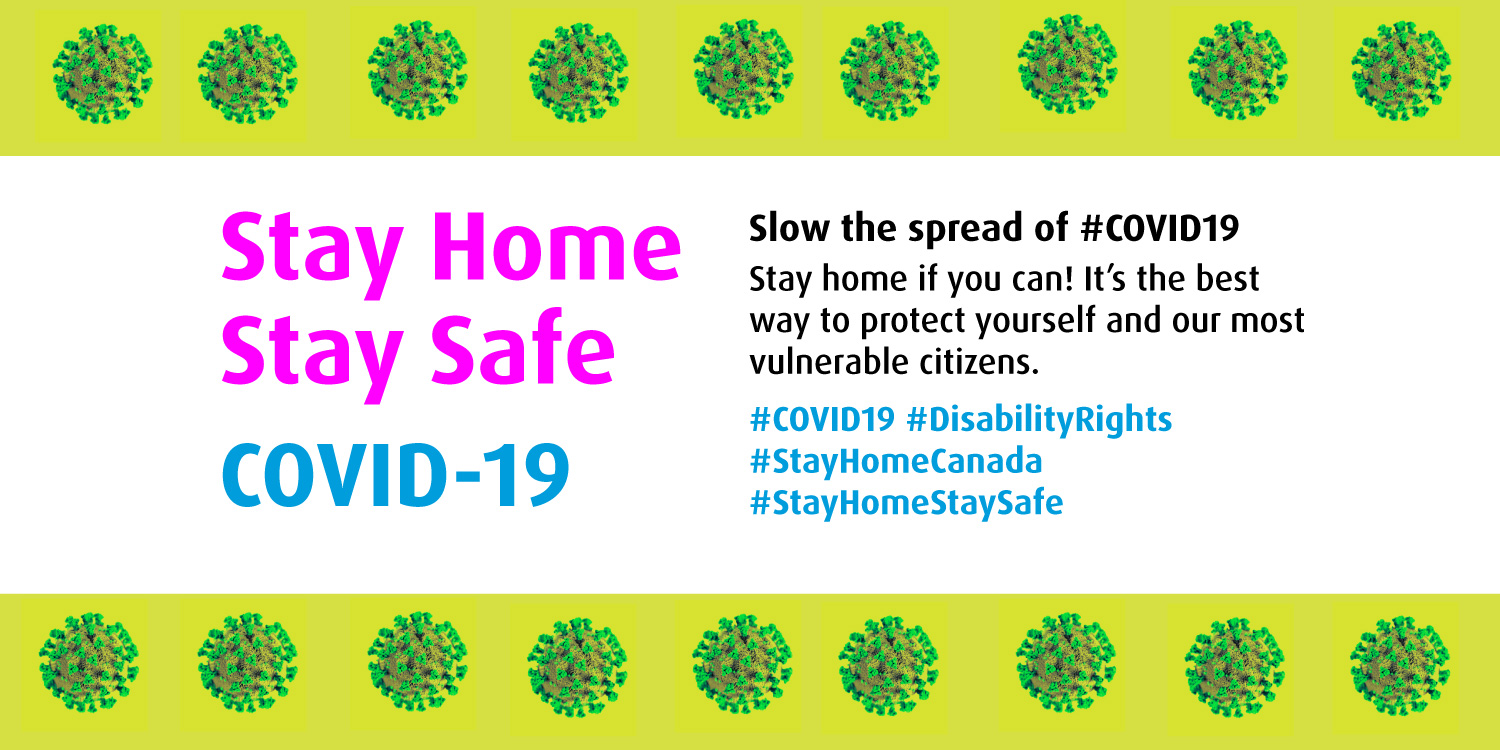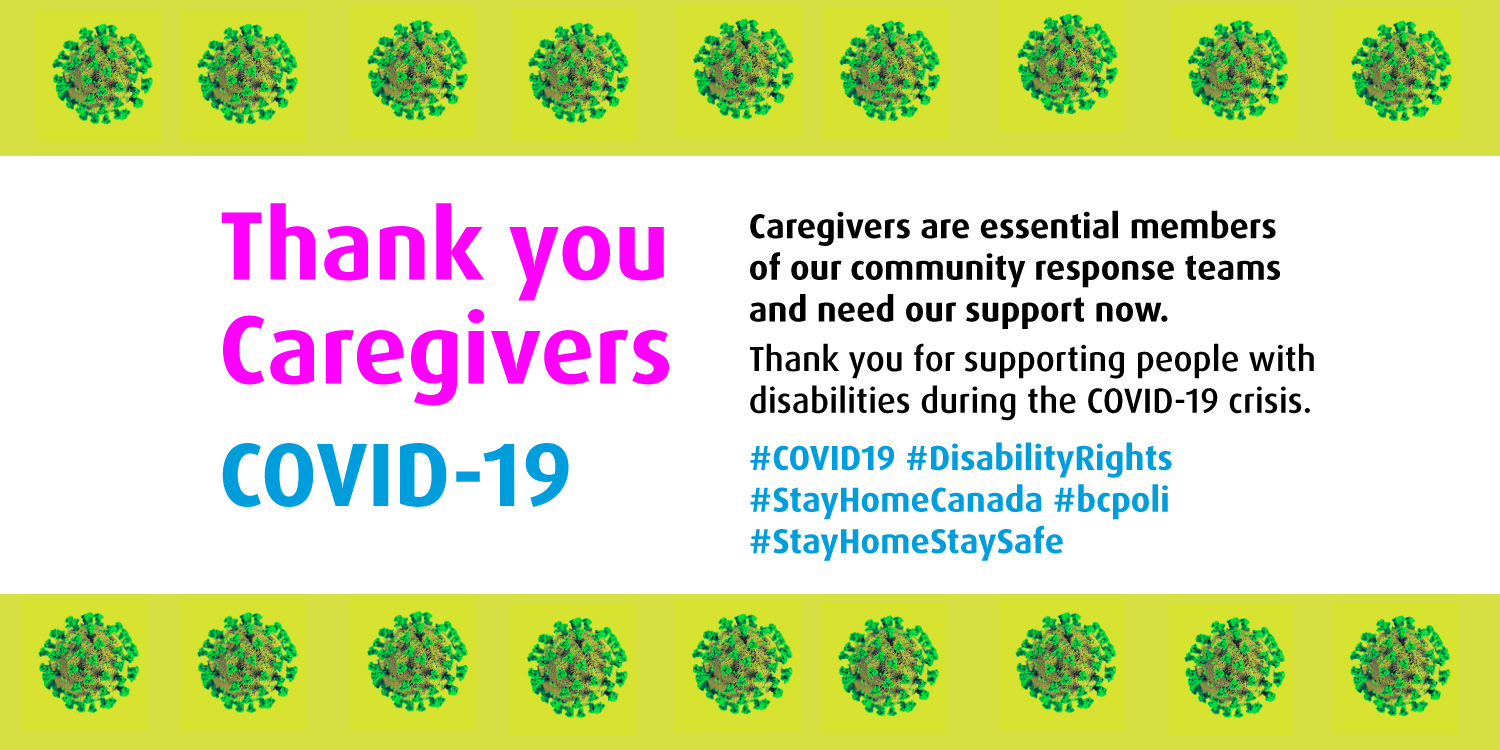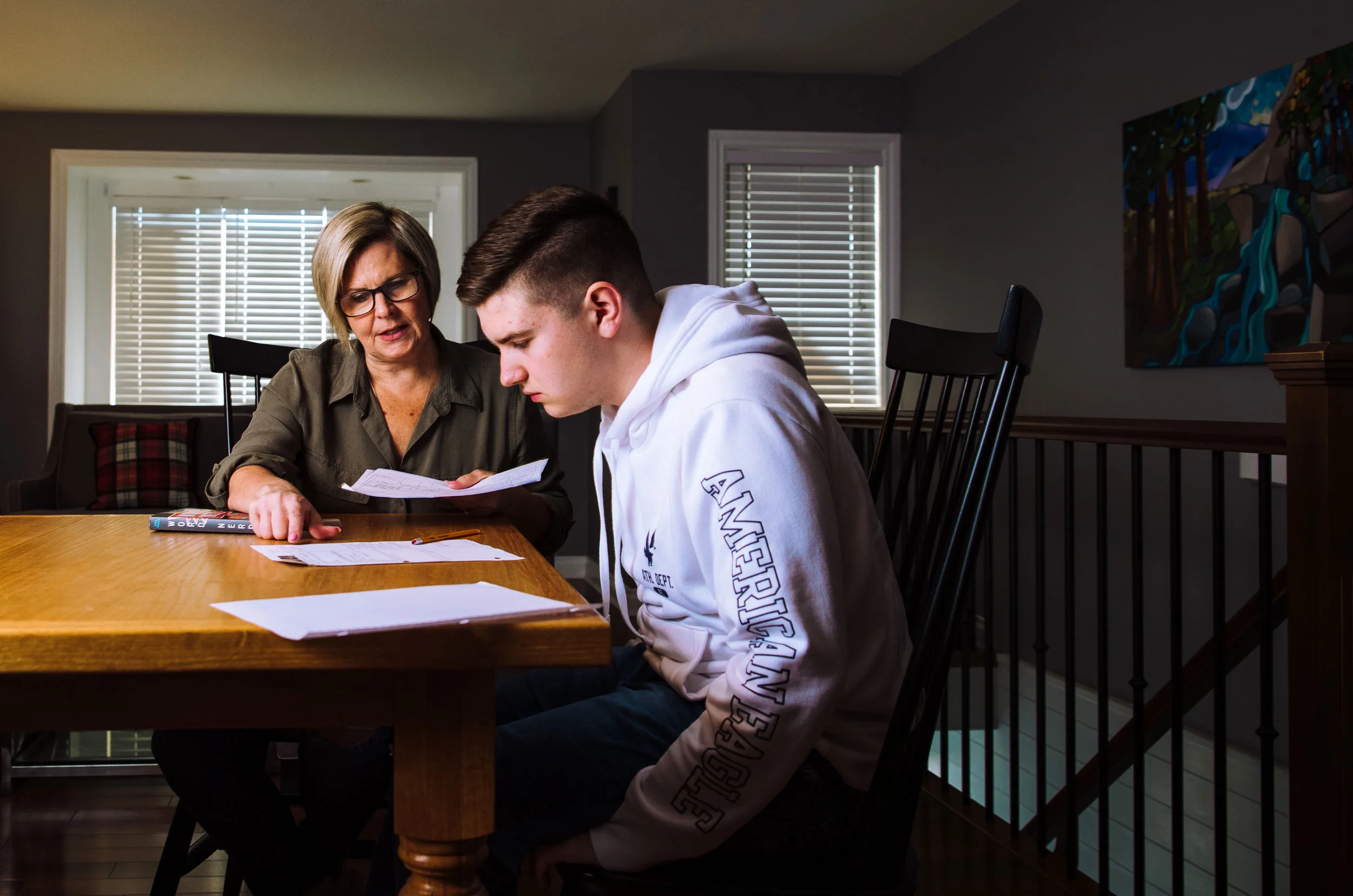COVID-19 Update: March 18, 2020
Stay home, Stay safe
Slow the spread of #COVID19. Stay home if you can! Help protect our most vulnerable citizens. @JustinTrudeau said it, “All Canadians as much as possible should stay home.” We agree! #DisabilityRights #StayHomeCanada #StayHomeStaySafe

Thank you to all the #Caregivers who are providing support for people with #disabilities during the #COVID19 crisis. Caregivers are essential members of our community response teams and need support now. #DisabilityRights #bcpoli

Advice from PLAN on staying connected while practicing social distancing
Staying socially connected during the global pandemic
Make a list of people you are concerned about and make a plan to stay in touch with them.Here are five ideas to get you started:
- Don’t wait to be asked.
For a variety of reasons (pride, past hurts, fear of being turned down, loss of confidence, confusion) not everyone will ask for help – even as their situations worsen. Keep the connection alive. Be confident and cheerful. Don’t give up even if the first couple of responses are lukewarm. Or if you haven’t been thanked. - Make it a team effort.
A small group or network is the best way to share the things that need to be done especially if the needs are great. It helps sort out who is doing what and when. A team effort allows you to take care of your other responsibilities. A team effort allows you to spell each other off while ensuring the person who is the focus of your concern is never neglected and taken care of in a timely way. - The latest technology helps.
So does old technology like knocking on the door or picking up the phone. What’s App, Slack, NextDoor, Facetime, private Facebook groups, email and telephone trees are simple ways to stay in touch and keep everyone up to date. You may want to invest in video conferencing platforms like Google Hangouts. Zoom is very good for people who lip read and their business version includes closed captioning and transcripts. - Little things make a big difference.
It all helps. A phone call every day or so, a Netflix subscription, a bag of cookies, running an errand, paying bills online, bringing in the garbage cans, picking up prescriptions, changing a light bulb, exchanging emergency contact information, walking the dog or checking someone’s internet connection. - The majority of people care and want to help.
We can’t emphasize this enough. Despite what you may have read or thought, caring is in Canada’s DNA. Don’t be afraid to ask. Or to accept help. You will actually be doing everyone a favour, including yourself.


